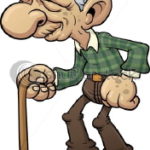They were all over my parent’s house, those monuments to my childhood: the plaster cast of my hand, a Valentine’s card I made myself. Now, my home is filled with the same monuments to my son’s childhood: the wreath made of rotini pasta that gets hung on the door every Christmas, the rock with felt feet, head and tail that, if you have enough imagination, looks very much like a turtle. They are prized possessions.
My home is also filled with the monuments of my return to childhood, of my return to a time of play and joy: my finisher’s medals and photos, my race T-shirts and even a second place trophy from a duathlon where there were only two males competing in the 45-49 age group. These too have become prized possessions. I’m always interested in what other runners do with their medals. I’ve been to homes where each medal is ceremoniously displayed in a glass-covered case complete with the race number, race shirt and photo. I don’t know how these people do it. I don’t understand how they find the time.
My medals are hung around my closet doorknob. Why? Because that’s where I unpack after a race weekend. I come home, empty the suitcase and hang the medal on the door. Unceremonious? Sort of. But, as the number of medals has increased, they have become something like a wind chime. Most of the time I don’t notice them hanging there. But, when I move the door, their clanging together reminds me of what I have accomplished.
In fact, now, after completing many marathons, I’ve had to start hanging the medals on both sides of the doorknob. The ribbons are so thick that it’s impossible to actually turn the knob. And their combined weight makes me worry about the strength of the hinges. The last thing I want is the door crashing to the ground in the middle of the night.
Recently, I was asked if, after so many marathons, it gets any easier. It might for some, but not for me. Sure, I understand the distance better. I know not to blast off in the early miles, I recognize the brain fade in the middle miles, and I’m not surprised by the fatigue in the later miles. But no two marathons are ever exactly the same. And the lessons learned in one may be of no use whatever in the next.
The medals serve to remind me of the humility it takes to run marathons. My first was in Columbus, Ohio, in 1993. That day was nearly perfect. With nothing more than a 15-mile run, I took off. I didn’t know that I wasn’t prepared, I didn’t know what to expect, and I had no particular plan. It is still my fourth fastest marathon.
I see the medals from Chicago and Marine Corps in 1997. That was the “year of the double” when I ran them on back-to-back weekends. The idea of running two marathons in two weeks ranks very high on the “stupid Penguin tricks” list. What’s most interesting, in retrospect, is that I ran the fastest 10K of the two weekends at the end of Marine Corps. I was tired of running by then, and just wanted it over.
There’s the seven London marathon medals. It’s the only course I’ve ever completed seven times, and the course that has the most emotional connections. I’ve always run London with a combination of joy and sorrow. There are the medals from the half-marathon in Florence, Italy where I learned how good a banana and hot tea can taste, and just how lost you can get if you lose sight of the runners in front of you and can’t speak the language.
The doorknob holds the memories of the good days, and the not-so-good days, of people who brought great inspiration into my life and then faded away. There are memories of cities and streets and steps taken towards a finish line that never really seemed to be the end.
Sometimes I think that I should put the medals in a place of greater distinction. I think that I should have them displayed where others can see them. But then I remember why I wanted those medals in the first place. I wanted them not to show to anyone else, but as reminders of my own journey as a runner, and as a person.
And like my son’s rotini wreath, I will prize them not for what they are, but for what they mean to me.
Waddle on, friends.








